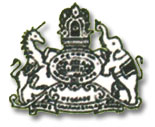/regions/political
Political
Traditional water management practices and water sector reforms in South India - A comparative analysis of three systems and Participatory Irrigation Management policy - Paper presented at the National Seminar on Water and Culture (2007)
Posted on 30 Jan, 2011 06:13 PMThe authors study three tanks; one each in Karnataka, Andhra Pradesh and Kerala and find that almost all tanks in Southern India face similar problems that include farmers in command area being deprived of water, siltation, lack of proper maintenance of such structures, lack of political will to decentralise authority to tank institutions etc.
Traditional water management practices in coastal Karnataka - Paper presented at the National Seminar on Water and Culture (2007)
Posted on 30 Jan, 2011 04:10 PMTh paper begins with a brief history of the region of Southern Kanada, its geography and the religious practices of the region. Some of the key features of this region includes an abundance of rivers though they mostly are rain-fed.
Suranga: A sustainable water resource - Paper presented at the National Seminar on Water and Culture (2007)
Posted on 30 Jan, 2011 02:18 PMThis paper explores Surangas, which are an ancient water system based on tunnels bored horizontally on the slopes of hills to get drinking water. These structures are mainly found in the laterite soils of Dakshina Kannada region and some parts of Kerala and Goa.
Preservation of Mysore urban water bodies - Paper presented at the National Seminar on Water and Culture (2007)
Posted on 30 Jan, 2011 04:00 AMThis paper presents the status of lakes in Mysore. It gives emphasis to the Socio-Economic Natural Complex - Lake Ecosystems (SENCLE) model of lake preservation and management which includes socio-technical aspects of lake care.
Glimpses of the historical water bodies in the Vijaynagar dynasty - Paper presented at the National Seminar on Water and Culture (2007)
Posted on 30 Jan, 2011 03:44 AMThis paper uses secondary data to showcase the water bodies that were built in the Vijayanagar Empire. The author states that there were 88 such water bodies and these were used for irrigation purposes and also for consumption.
Decline of tank irrigation institutions in South India - A case-study of Tamil Nadu - Paper presented at the National Seminar on Water and Culture (2007)
Posted on 30 Jan, 2011 03:34 AMThe author gives a brief history of tank irrigation in South India. The number of irrigation tanks in India were 208,000, of which 120,000 were in the three Southern states of Andhra Pradesh, Karnataka and Tamil Nadu. These tanks irrigated 1.8 million hectares. The author uses graphs to point out to the decline in tank irrigation.
MGNREGA wage rate revision - Official notification from the MoRD
Posted on 29 Jan, 2011 10:58 AMS.O.82(E)-In exercise of the powers conferred by sub-section(1) of section 6 of the Mahatma Gandhi National Rural Employment Guarantee Act, 2005 (42 of 2005), and in supersession of the notification of the Government of India in the Ministry of Rural Development number S.O 1(E), date the 1st January, 2009, except as respects things done or omitted to be done before such supersession, the Central Government hereby specifies the wage rate payable to the unskilled manual worker under column (3) in respect of the state or the Union Territory mentioned in column (2) of the Schedule given below, working on various schemes under the said Act, with from the 1st day of January, 2011
The need for creating a River Act - Anupam Saraph
Posted on 28 Jan, 2011 06:30 PMRivers, streams and lakes are the vital link in the water cycle that ensure that life as we know it can continue to flourish on earth. Unfortunately, as Dr Rajendra Singh points out, there is no river in India that has been spared from encroachment and pollution. The massive Ganga Action Plan has failed to clean the Ganges.
Sri Kshethra Dharmasthala Rural Development Project organizes 3 days Krishi Mela, 4th to 6th Feb, Bajagoli near Udupi
Posted on 28 Jan, 2011 05:49 PM Organizer: Sri Kshethra Dharmasthala Rural Development Project
Organizer: Sri Kshethra Dharmasthala Rural Development Project
Venue: Government Pre-University College grounds, Bajagoli, Udupi
Description:
Sri Kshethra Dharmasthala Rural Development Project (SKDRDP) will be organising its 31st annual three-day Krishi Mela at the Government Pre-University College grounds at Bajagoli in Udupi district from 4th to 6th February, 2011.
We are not doing a true cost-benefit analysis of hydropower dams in India - Interview with Dr. Bharat Jhunjhunwala
Posted on 28 Jan, 2011 05:46 PM Dr. Bharat Jhunjhunwala, past faculty at IIM, Bangalore, holds a doctorate in Economics. He has been working persistently on economic impacts of hydropower dams, applying the concepts of environmental economics to arrive at some interesting results.
Dr. Bharat Jhunjhunwala, past faculty at IIM, Bangalore, holds a doctorate in Economics. He has been working persistently on economic impacts of hydropower dams, applying the concepts of environmental economics to arrive at some interesting results.
His latest book, ‘Economics of River Flows: Lessons from Dam Removals from America’ analyses dam decommissioning examples from the United States and raises some pertinent questions about costs benefit analysis of dams in India. His earlier book, ‘Economics of Hydropower’ raised questions about economic efficiency, viability and sustainability of Hydropower Dams in India.
Parineeta Dandekar, IWP, talks with him on some of these issues.
Dr. Bharat Jhunjhunwala can be contacted at: bharatjj@gmail.com